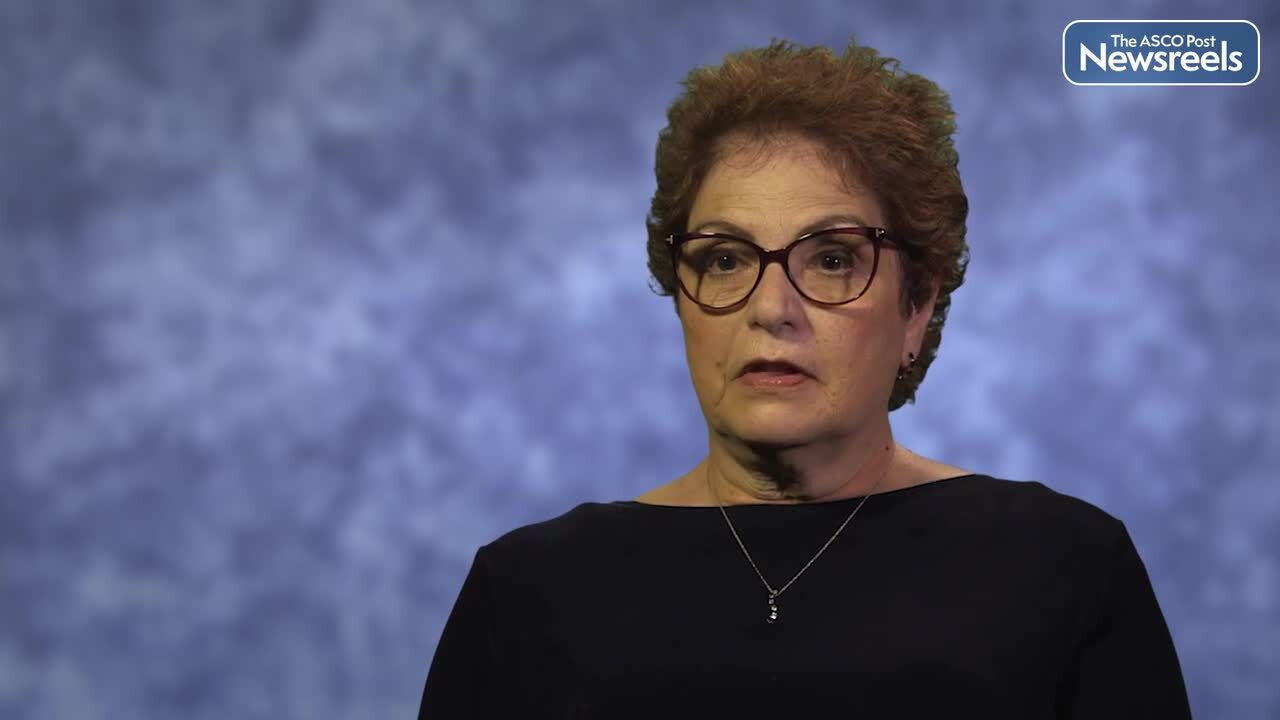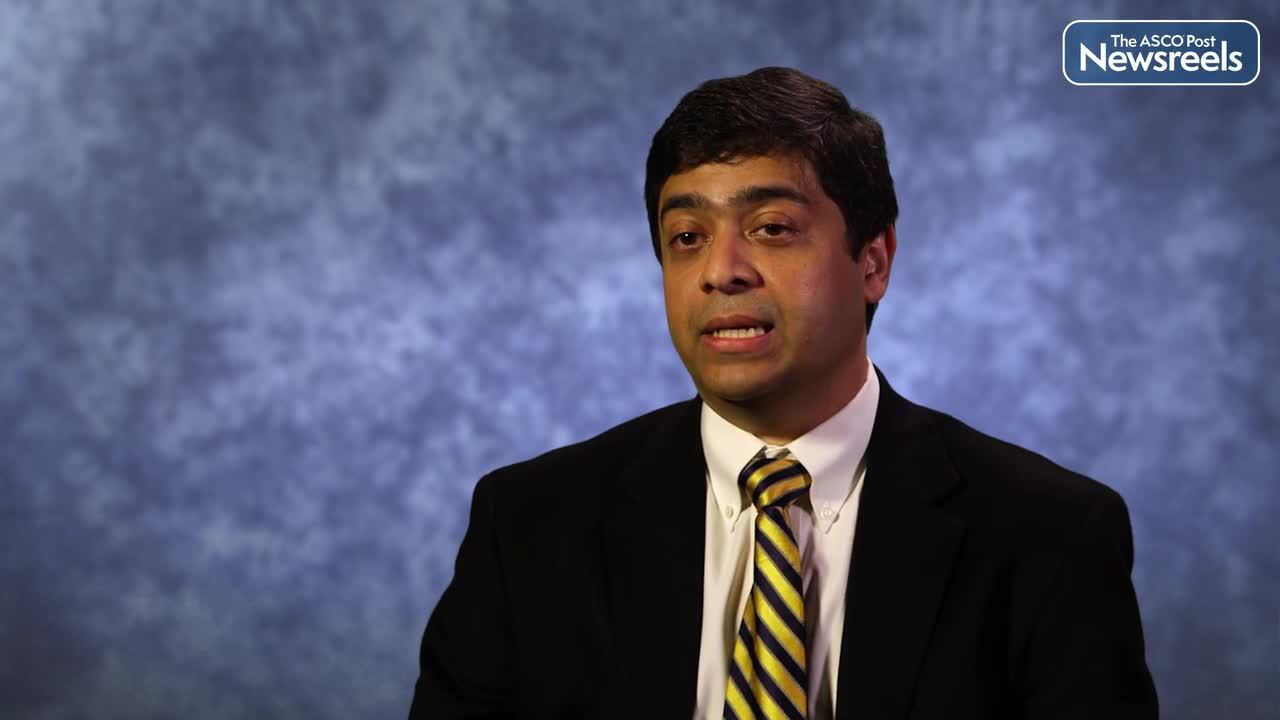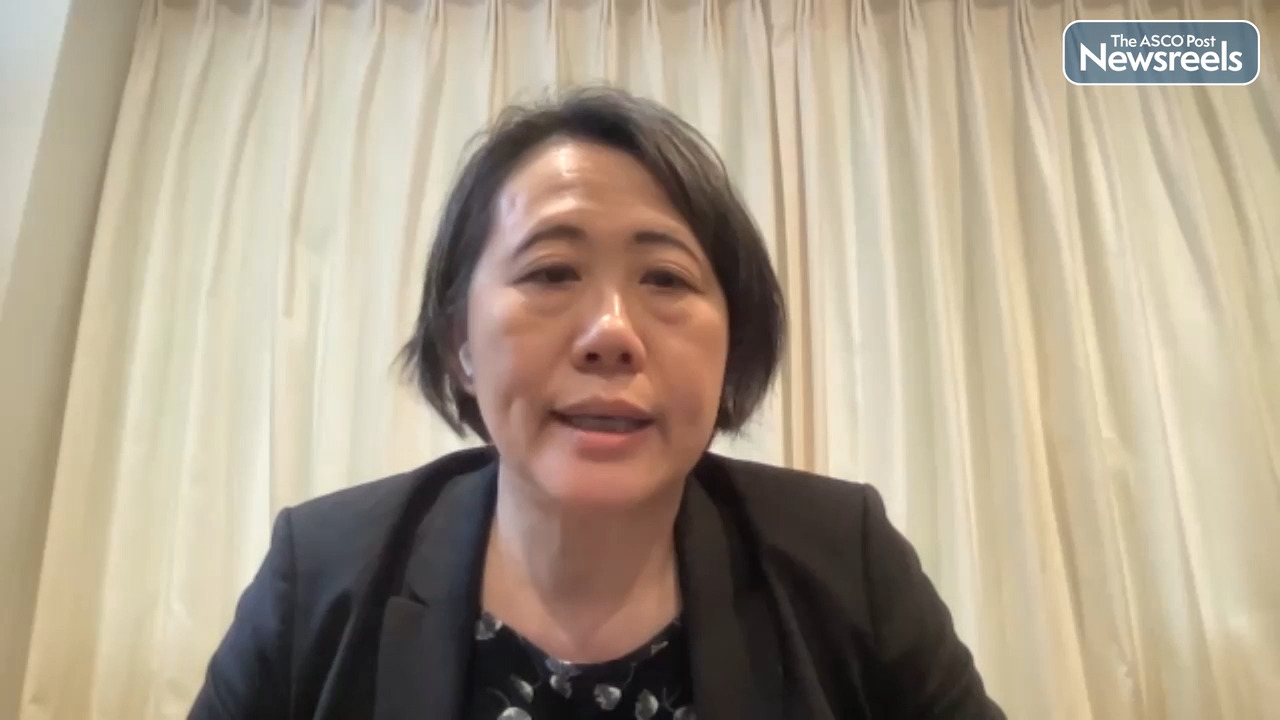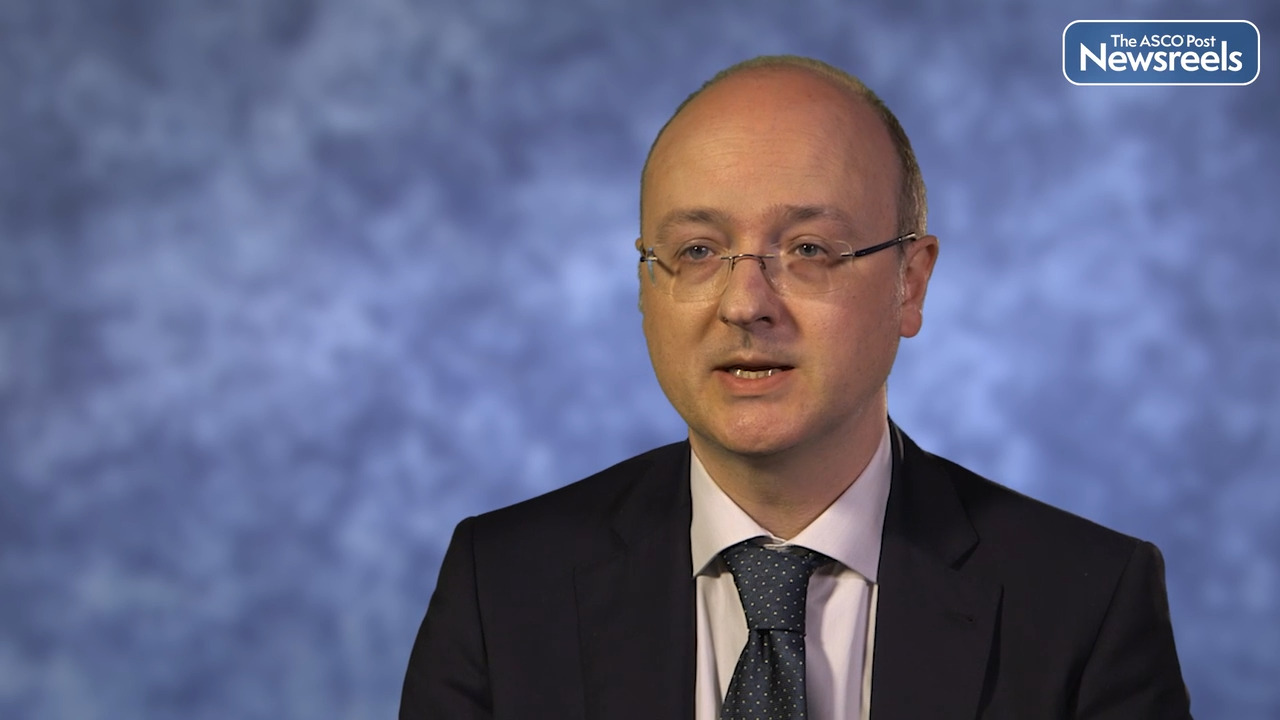Zev Wainberg, MD, on Gastroesophageal Junction Adenocarcinoma: Early Results With Anti-CD39 Antibody Plus Chemoimmunotherapy
AACR Annual Meeting 2022
Zev Wainberg, MD, of the University of California, Los Angeles Medical Center, discusses preliminary data on the safety and efficacy of TTX-030, an anti-CD39 antibody, in combination with budigalimab and FOLFOX for the first-line treatment of locally advanced or metastatic gastric or gastroesophageal junction adenocarcinoma. The study suggests the regimen may prove to be of benefit as a first-line treatment, regardless of combined positive score status (Abstract CT015).
The ASCO Post Staff
Electra D. Paskett, PhD, of The Ohio State University, discusses various factors that may contribute to cancer such as socioeconomic status, discrimination, violence, and access to health care. When clinicians identify these factors and intervene with access to services, it may be possible to improve outcomes for their patients (Abstract SY33).
The ASCO Post Staff
Vivek Subbiah, MD, of The University of Texas MD Anderson Cancer Center, talks about innovative design of clinical studies that may help demonstrate clinical benefit in precision medicine and advance treatment to deliver the right intervention to the right patient at the right time (Abstract DC06).
The ASCO Post Staff
Lillian L. Siu, MD, of Canada’s Princess Margaret Cancer Centre, discusses biomarker-driven precision cancer medicine, the optimal sequencing of immunotherapy (IO) with standard treatments in curative settings, IO targets beyond PD-1/PD-L1 and combinatorial strategies, and next-generation adoptive cell therapies (Abstract PL06).
The ASCO Post Staff
Benoit You, MD, PhD, of the Lyon University Hospital (France), discusses phase I/II safety and efficacy results from the ENDOLA trial that combined olaparib with metronomic cyclophosphamide and metformin in patients with advanced pretreated endometrial cancer. At 10 weeks, the non–disease progression rate was 61.5%, reaching the primary endpoint of the study. Median progression-free survival was 5.1 months. Research on biomarkers of efficacy is ongoing (Abstract CT005).
The ASCO Post Staff
Iván Márquez-Rodas, MD, PhD, of Spain’s Hospital General Universitario Gregorio Marañón, discusses final results of the phase II SPOTLIGHT203 study of systemic pembrolizumab in combination with intratumoral BO-112 for patients with advanced melanoma refractory to anti–PD-1–based therapy. The regimen achieved an overall response rate of 25% and a disease control rate of 65% (Abstract CT014).





